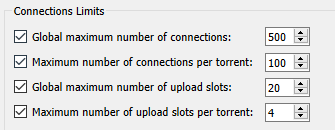When you’re first getting started with BitTorrent, common torrent terminology can be confusing. People often get confused at the differences between seeders, leechers and peers (which are usually displayed as a metric inside your torrent client).
So what is a Leecher (or leech) in BitTorrent? Are you a leech? Is leeching bad?
We’ll answer all these questions (and more) in the next few minutes.
What is Leeching?
In BitTorrent, the term ‘Leeching’ describes the act of downloading a torrent before you have a complete copy. Anyone who is currently ‘leeching’ a file is known as a leech.
Leeching vs Seeding
All clients participating in a BitTorrent swarm are collectively known as peers.
There are two types of peers:
- Leechers – anyone still trying to download the complete file
- Seeders – Uploaders who already have a full copy of the torrent file
So from the moment you start a new torrent download, you will be a leecher until you have the complete file, at which point you flip to become a seeder.
Are Leechers Bad?
No, in principle torrent leechers are not bad. Leeching is a 100% unavoidable part of participating in the BitTorrent network. It is impossible to become a seeder until you have already leeched the full file (unless you’re the original uploader).
Not only that, but most leechers are still actively seeding pieces of the file (whichever ones they’ve already downloaded). So leechers can still contribute bandwidth to the torrent swarm, even being a net benefit.
Don’t be the bad kind of leech
Even though most leechers are seeders too, you don’t have to be. There are plenty of leechers that set their torrent client upload bandwidth to zero (or effectively zero).
This type of leecher gives nothing back to the network and only takes bandwidth from others. This type of heartless bloodsucker is not unlike the creature for which leeches get their name.
Non-uploaded leechers run rampant on public torrent sites, but wouldn’t last a day on private trackers which enforce strict seeding requirements and share ratios.
Leechers can be useful & helpful
Because leechers can also seed files, a group of leechers can save torrents that otherwise might die from a lack of active seeds. For example, if 10 leechers have the complete file between them, the torrent swarm can still function even without a complete seed.
As long as these peers stay connected, everyone can eventually grab a complete copy of the file (pulled from multiple leechers) and save the torrent from dying.
How to Seed While Leeching?
By default, most torrent clients will be setup to actively seed an complete pieces you have downloaded, even while you’re still actively downloading the complete file.
If your torrent client isn’t doing this (you don’t see any upstream bandwidth for that file) you should check the client settings under the bandwidth or queue tab.
For example, make sure you have upload slots available and the global upstream bandwidth isn’t capped at a low number.

Pro Tip: Also make sure your torrent clients ‘Connection Health’ indicator is showing a green or good status. If not, you may have some other type of issue (such as port forwarding problems) that can be preventing you from seeding while leeching.
Some ISPs block upstream bandwidth
If you can’t figure out why your upstream bandwidth is zero, your internet provider may be to blame. Around the world, there are several large Internet Service Providers (ISPs) that actively block all upstream torrent traffic to reduce their legal exposure.
The best way to circumvent your ISPs upstream bandwidth blockade is by using a VPN, which will encrypt your torrent traffic and effectively make it unlockable.
Summary: BitTorrent Leeching
- Are Leechers bad? No leeching / leechers are not bad for bittorrent. Overall, leechers can actually contribute positive bandwidth to a torrent swarm.
- What is the etiquette for leeching? Make sure you allow sufficient upstream bandwidth while you’re in leech-mode, so you’re not just a drain on the network.
- Is there any penalty for leeching? On public trackers, there is no penalty for excessive leeching, and it’s doubtful anyone would notice (or care). On private trackers, however, you’ll quickly get banned if you don’t contribute more bandwidth than you take out.